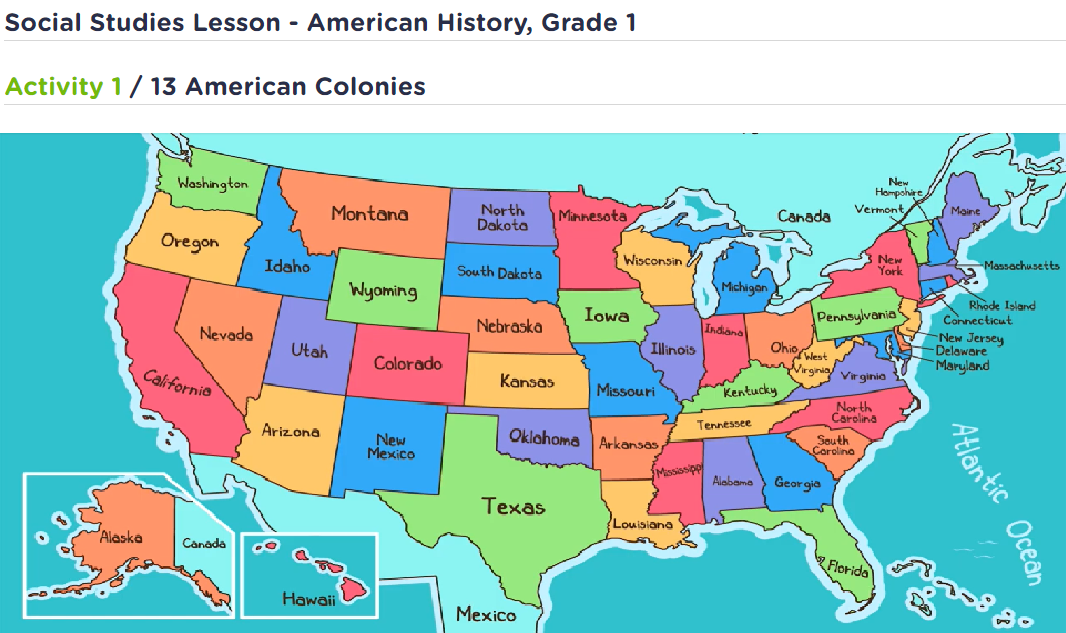Problem-Solving Skills Life Science Worksheets for Ages 5-7
4 filtered results
-
From - To
Discover our engaging "Problem-Solving Skills Life Science Worksheets" designed specifically for children aged 5-7. These interactive resources focus on developing essential problem-solving abilities through fun, age-appropriate life science activities. Our worksheets encourage critical thinking, creativity, and analytical skills while exploring topics such as habitats, ecosystems, and the natural world. Each worksheet is thoughtfully crafted to be both educational and enjoyable, ensuring young learners stay engaged as they tackle problems and find solutions. Perfect for home or classroom use, these worksheets are an excellent tool for nurturing curiosity and fostering a love for science while building vital life skills.
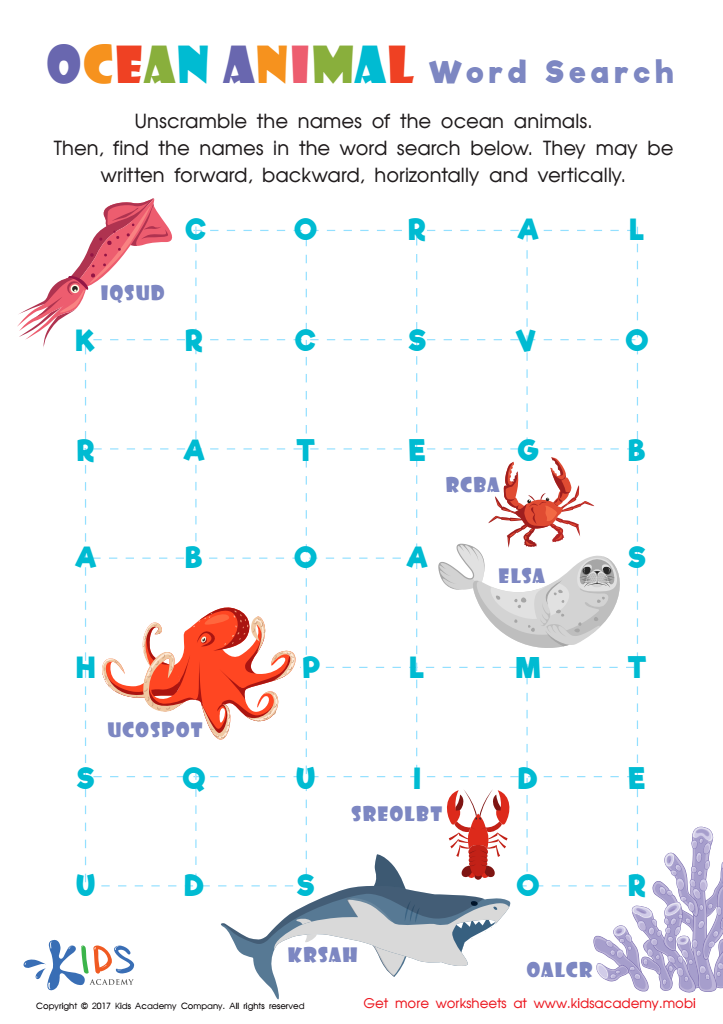

Ocean Animals Word Search Printable
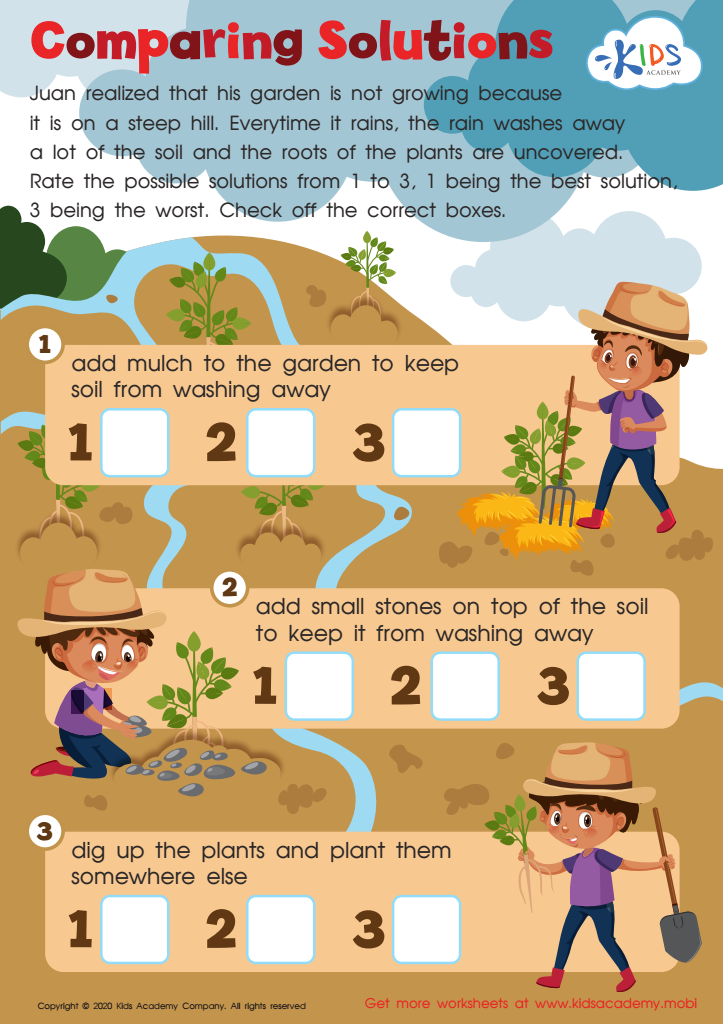

Comparing Solutions Worksheet
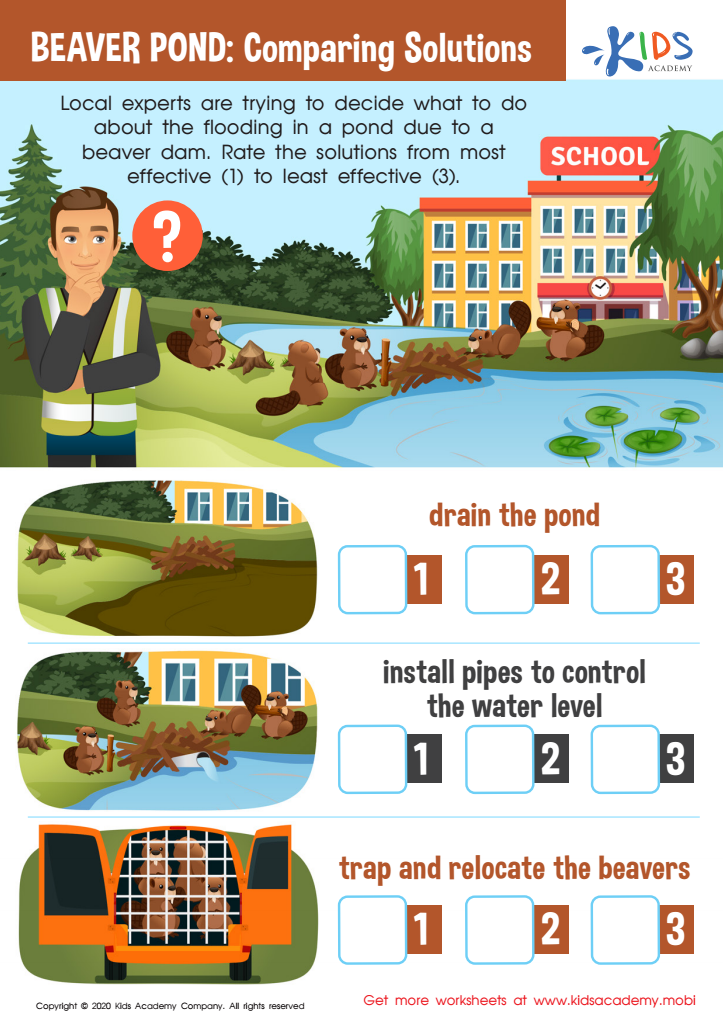

Beaver Pond: Comparing Solutions Worksheet
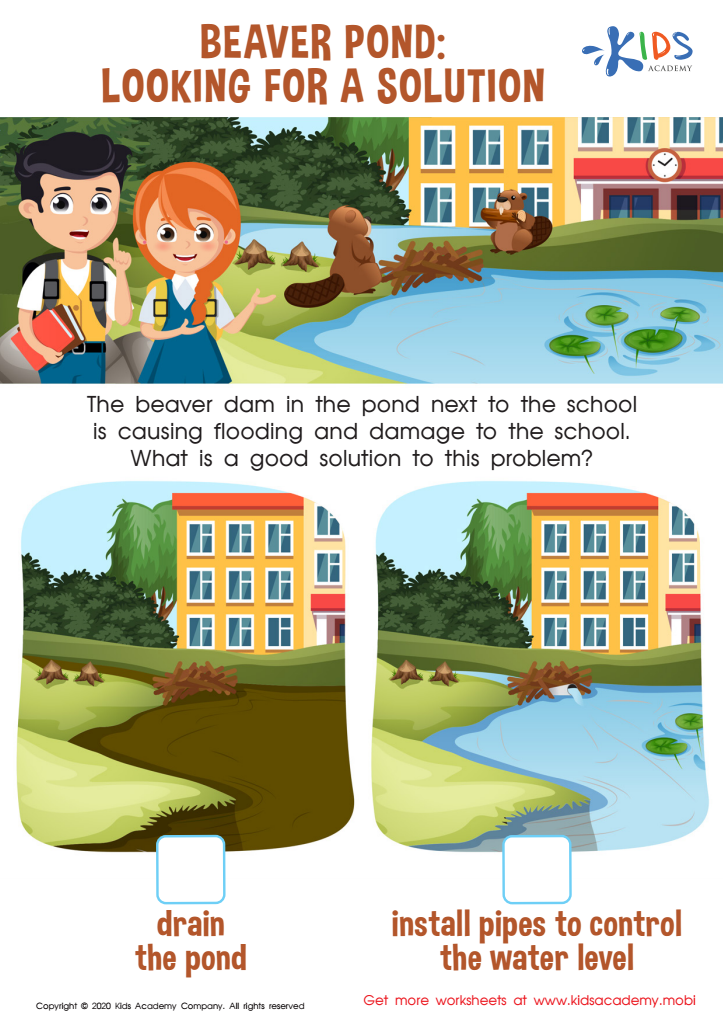

Beaver Pond: Looking for a Solution Worksheet
Problem-solving skills in life science for children aged 5-7 are vital for their development and academic success. At this age, children are naturally curious and eager to explore the world around them. Teaching them problem-solving within the context of life science encourages critical thinking, experimentation, and hands-on learning. As children observe and interact with living organisms, they learn to ask questions, formulate hypotheses, and seek solutions based on their observations.
By engaging young learners in problem-solving activities related to life sciences, parents and teachers provide them with the tools to understand complex ideas, such as ecosystems, growth, and health. This foundational knowledge fosters a sense of responsibility towards nature and the environment, instilling values of conservation and sustainability.
Moreover, problem-solving skills promote social development through collaboration. When children work together to explore scientific questions, they learn how to communicate effectively, develop empathy, and build teamwork skills. Ultimately, nurturing problem-solving abilities in life science not only prepares students for future academic pursuits but also equips them to navigate real-world challenges with confidence and creativity. Thus, fostering these skills early on is essential for nurturing curious, responsible, and well-rounded individuals.

 Assign to My Students
Assign to My Students




